ICRC’s Year in Pictures 2023: Delivering hope in an increasingly polarized world
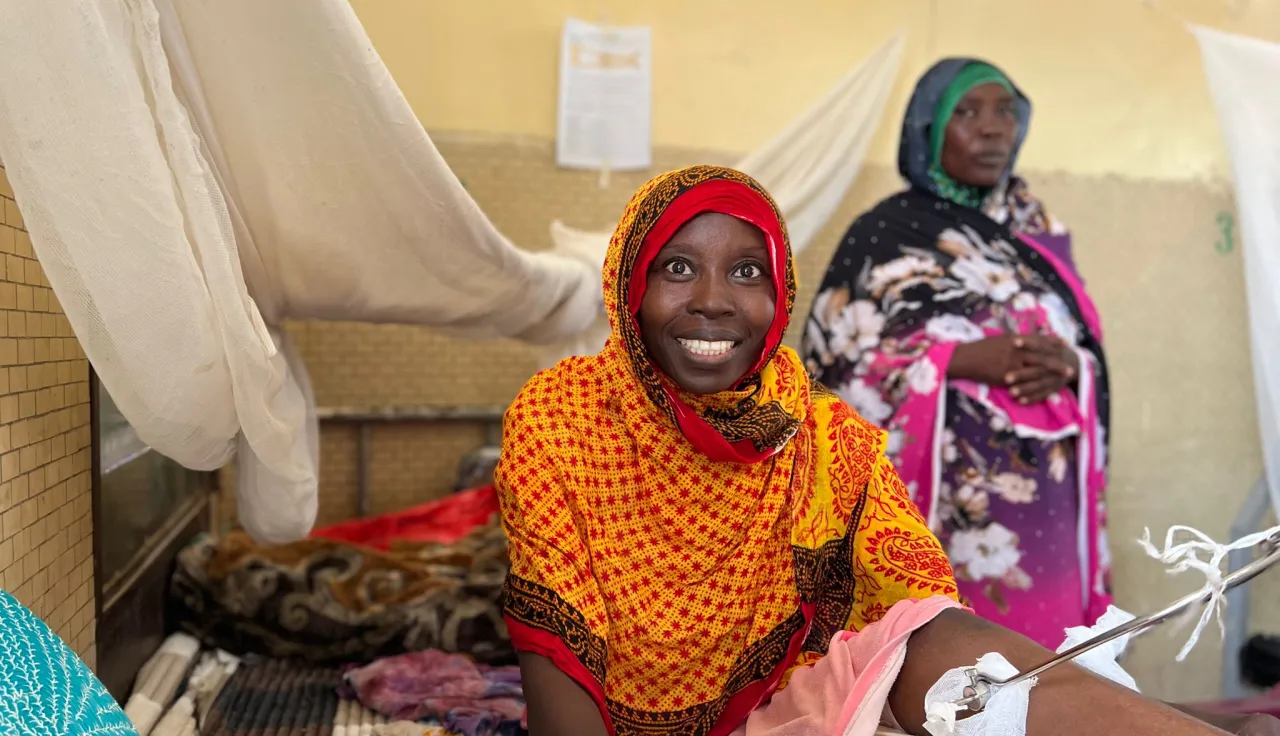
ICRC President Mirjana Spoljaric: "There is an urgency to rediscover the humanity in one another."
From Haiti to Mali, Ukraine and the Gaza Strip, Yemen, Ethiopia and Karabakh, humanitarian space seems to have shrunk a little more every day in 2023. Millions of people around the world have been subjected to unbridled armed violence, too often in defiance of the most basic rules of international humanitarian law (IHL).
Victims of conflict lose access to food, water and shelter, and see the destruction of their schools and hospitals. Additionally, they face a flood of malicious information on social networks and in the media. In this type of so-called hybrid war, the aim is to demonize the adversary. It's about stripping them of their humanity, and – ultimately – an attempt to deny them their right to live.
Humanitarian organizations have also been the target of both physical and virtual attacks. Our commitment to the principle of neutrality, which helps us reach more of the most vulnerable people regardless of which side they are on, has been decried by those who demand that we take sides.
We exist to assist all victims of conflict, and we carry forward with that mission.
As President Mirjana Splojaric put it, "the ICRC asserts its clear determination to stand up for people during wartime – whether civilians or combatants – to ensure that their rights and protections under IHL are upheld".
We worked to bring vital help where it was most needed, so that life could resume and smiles return. Our commitment will not waver in 2024.
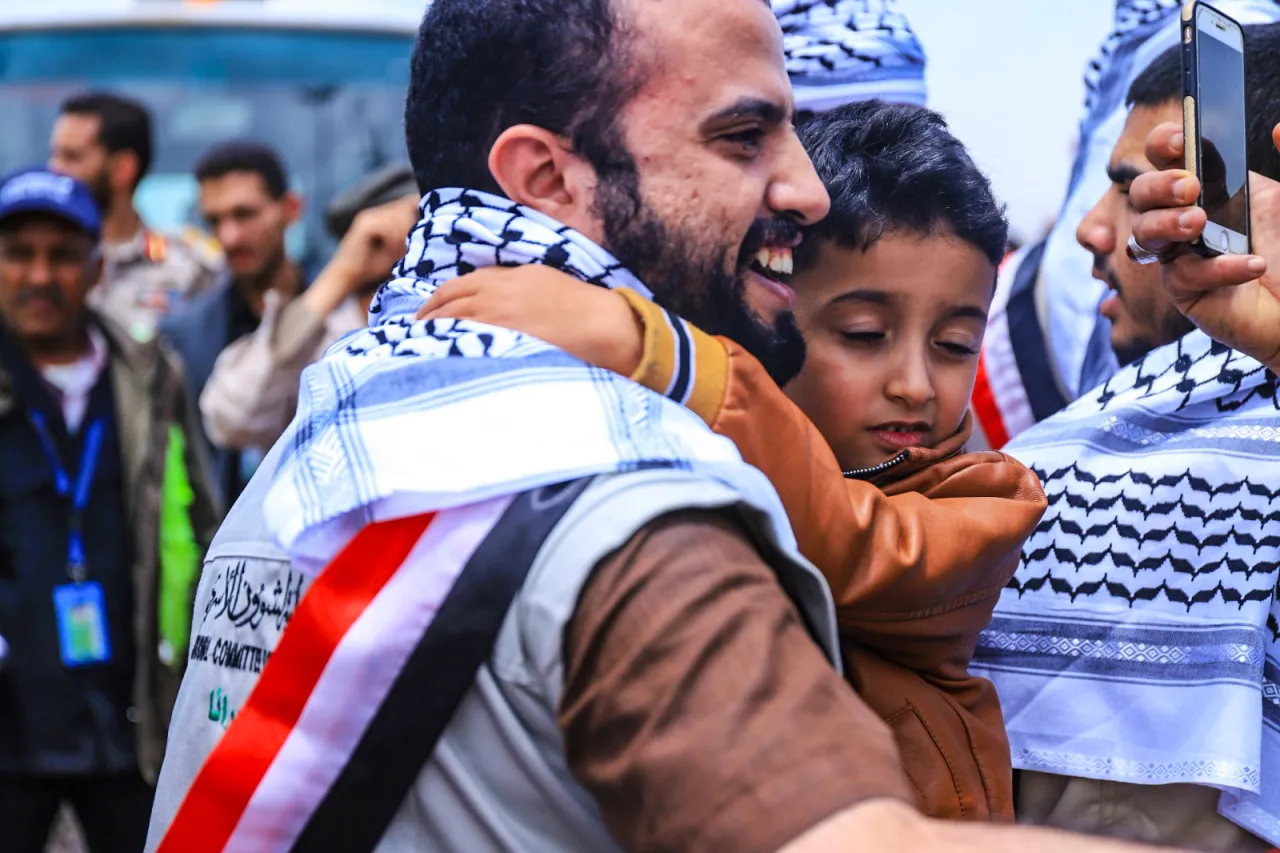
At the request of the parties involved in the fighting in Yemen, the International Committee of the Red Cross (ICRC) facilitated mid-April 2023 the release and transfer of 973 people detained in relation to the conflict.
Yemen: "A great moment of humanity" as detainees are released
Friday, 14 April 2023, Aden's airport. ICRC delegate Fatima Sator accompanies ex-detainees on their way to Sanaa. Before boarding the plane, she hands them a phone so they can alert their families they will be home soon. "This is so moving, all of them are euphoric at the idea of seeing their relatives in the next hours after years of captivity. It's a great moment of humanity," she said.
The ICRC mobilized two chartered planes and three ICRC-owned planes that carried out a total of 18 flights back and forth between six towns in Yemen and Saudi Arabia, facilitating the safe return of over 950 individuals to return home.
In the days and weeks leading up to this operation, the ICRC visited all detainees in their places of detention and met them privately to make sure that returning home is done willingly. Delegates also made sure that the detainees were fit to fly and offered them the option to inform their families that they were coming home.
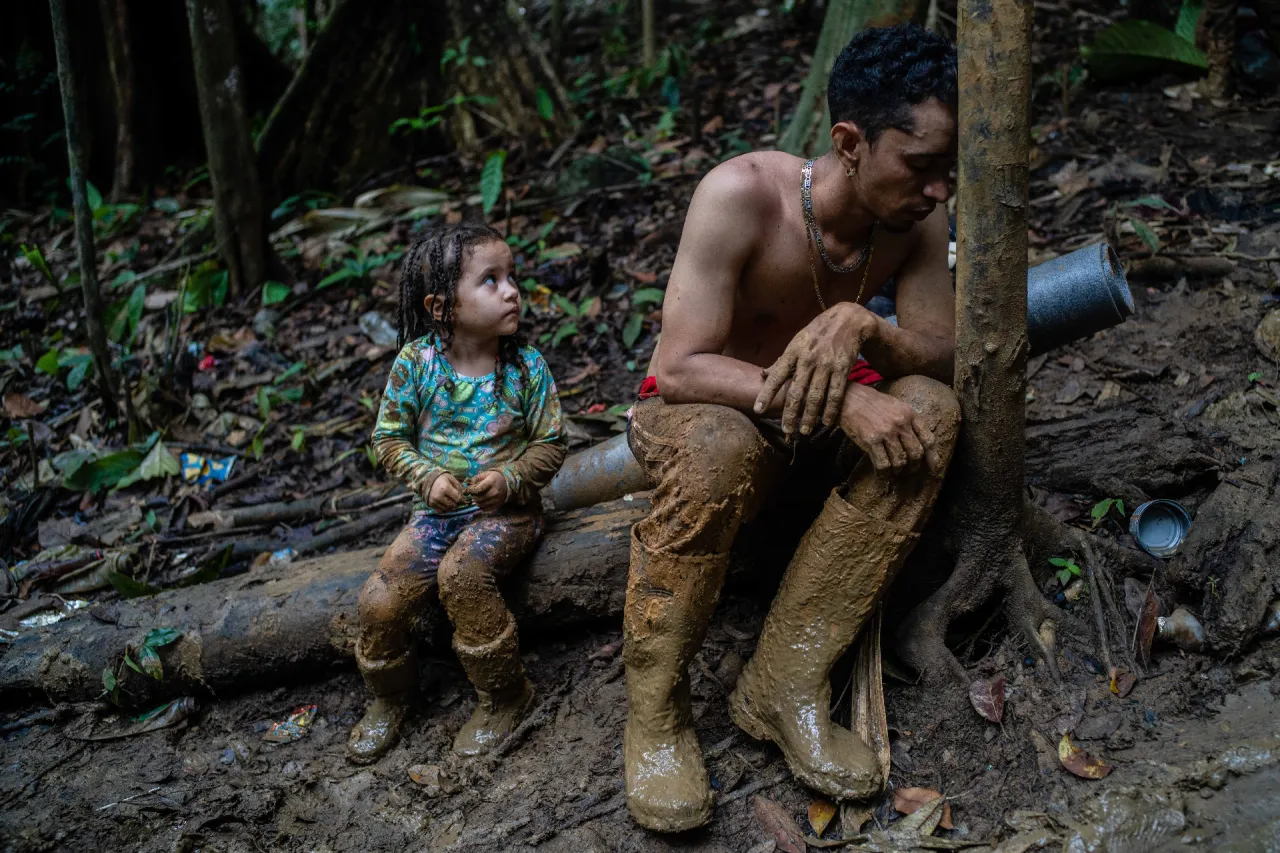
Venezuelan migrant Luis Miguel Arias (28) with his daughter Melissa (4) taking a break while climbing a hill at the Darién Gap, between Colombia and Panama. He crossed the Gap with his wife, their two children, and a friend.
Panama/Colombia: With migrants on the perilous paths of Darien
In 2023, more than 500,000 people crossed the Darien Gap, a jungle that lies between Colombia and Panama. There are no official figures on the number of deaths in the attempt, but there are likely to be dozens.
The ICRC promotes among the concerned authorities best practices and standards on the dignified treatment of the dead, their identification and the return of the mortal remains to their families. In March 2023, we funded the construction of a forensic mortuary in the town of Pinogana, (Darien).
In addition we help migrants in the region to let their loved ones know what's happening to them by providing free phone calls and recharging their battery. For many, it's the only way to let their beloved know that they survived their journey through the Darien Gap.
See the work of phtographer Federico Rios Escobar in the region.
Read more on our forensic work.

Niemat had been writing a book about the outbreak of violence in her hometown in Sudan, but it was lost when she was shot and fled to Chad. She says she will start over.
Chad: Surviving against all odds
In July 2023, our communications officer Eleonore Abena Kyeiwaa Asomani was in Abéché, eastern Chad, where the ICRC had sent a surgical team. She met people who had fled Sudan on foot because of the violence, listening to what they had to say while recovering from their injuries.
With her hip fractured by a gunshot, Niemat thought she was likely to die. Her son tried to lift her up where she fell, and she begged him to just save himself. But her son didn't leave her behind, and they managed to reach shelter. A week later, they were separated, and Niemat hasn't heard from him since. She is one of the many patients operated by ICRC surgeons.
Says Eleonore: "Through their stories I saw how incredibly cruel war is to those who cannot protect themselves. But I also saw how tremendously strong they were in their struggle to survive."
More testimonies here.
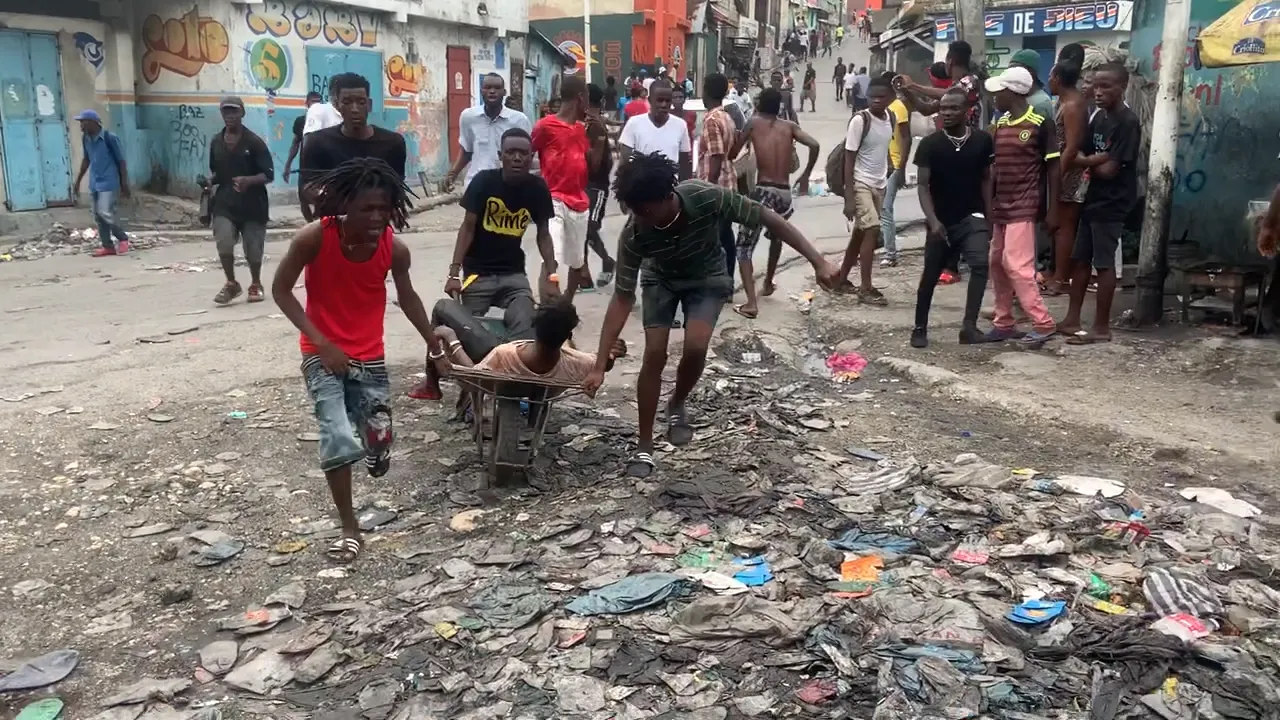
The substantial increase of armed groups in Haiti, now numbering up to 300 gangs, has led to a serious deterioration in the security situation, particularly in the capital Port-au-Prince. Sick and wounded people will try to reach hospitals by any means possible.
Haiti: Delivering health care amid growing insecurity
The humanitarian situation in Haiti has dramatically deteriorated in recent years. Intensifying clashes among armed groups or between armed groups and the National Police of Haiti have resulted in rising humanitarian consequences for communities already suffering an acute economic crisis. Inflation is rising fast, even as nine out of ten Haitians live below the poverty line.
People living in areas severely affected by armed violence have seen their movements in and out of their neighborhoods getting more and more complicated.
However, when injured or sick, their only option to get treatment is travelling to a hospital, given that health services in these neighborhoods are barely existent and medical staff have stopped in many cases to work there due to insecurity.
Full story on the work of ICRC and the Haitian Red Cross in the midst of violence.
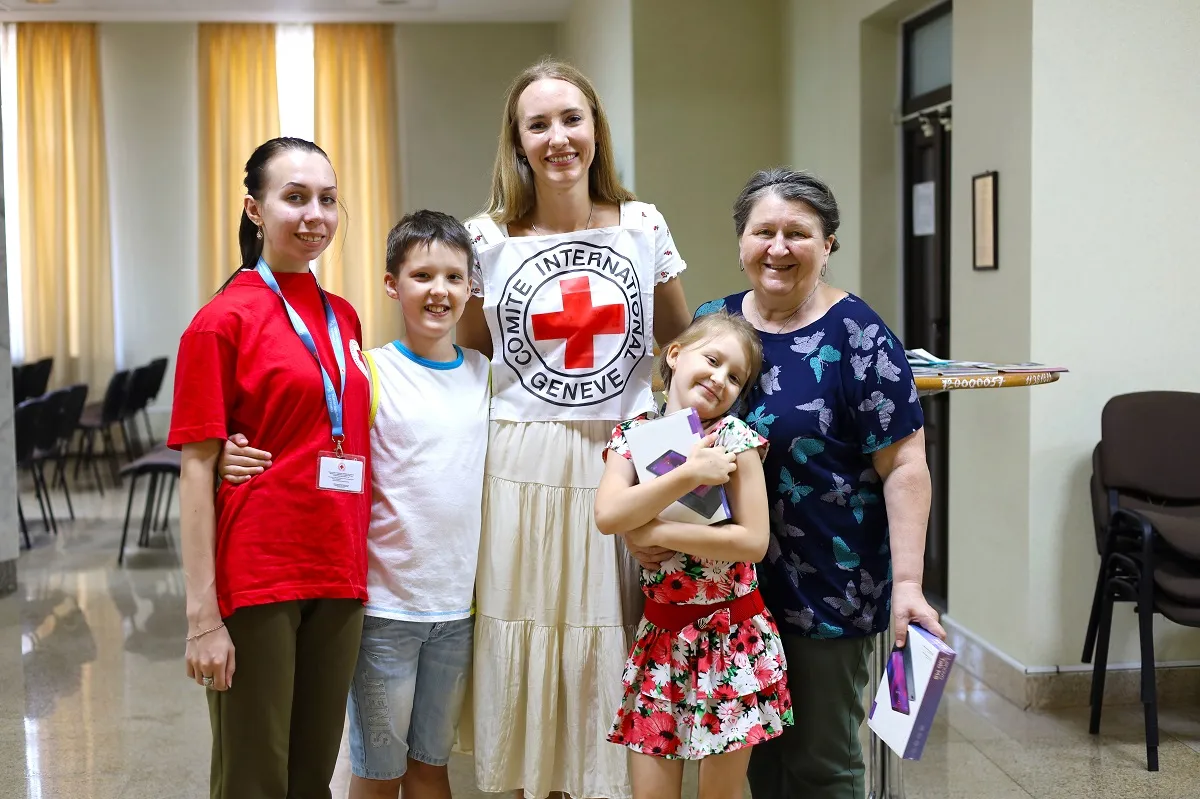
Liubov Petrivna (right) has had custody of her two grandchildren, Pavlo (second left) and Kseniia (second right).
Ukraine: Finding creative paths to learning amid armed conflict
The international armed conflict between Russia and Ukraine continued to have a major impact on children's lives in 2023. In some parts of Ukraine, most schools are empty, their roofs and walls damaged and their windows boarded up. Some have even been destroyed by shelling.
Liubov Petrivna has had custody of her two grandchildren, Pavlo and Kseniia, since they lost their parents in the hostilities. She's doing everything she can to give them a good life, no matter what: caring for them, helping them with their homework, taking them to beading and dance classes, loving them unconditionally. The family lives in the city of Sumy. Kseniia is in the third grade and Pavlo in fifth grade. They do blended learning – part face-to-face and part remote. Liubov says the children really like going to school and seeing their friends there. The remote part has been hard, though: they have just one old smartphone for the two of them.
"They've tried to do distance learning, but the phone is old and keeps running out of memory. Sometimes they can't even join the lessons or sign into their account to see their homework," says Liubov. The ICRC has given Kseniia and Pavlo each a tablet so they can have consistent access to their lessons and study outside of school. Read full story.

Arrab Ag Yehia, a livestock farmer and manager of a site for displaced people near Gao: "We are aware that humanitarian aid cannot last a lifetime. As things stand, I don't know if I'm going to be able to put food on the table when I get home."
Mali: livestock farming – a traditional way of life under threat
Livestock farming is one of the main sources of income for people in central and northern Mali. However, the ongoing armed conflict and the growing impact of climate change are hampering the efforts of herders to keep their animals alive and healthy.
Due to insufficient rainfall, pastures and arable land are disappearing throughout the Sahel region at an increasing pace. The animals are underfed and more susceptible to disease. And amid an increasingly insecure environment, veterinary services are struggling to safely access remote areas. The cross-border region of Liptako-Gourma is particularly dangerous for livestock farmers, who face the risk of their animals being stolen.
To combat food insecurity, we vaccinated – in partnership with the Malian Ministry of Rural Development – more than 4 million animals of all species between November 2022 and April 2023, benefiting 138,702 families.
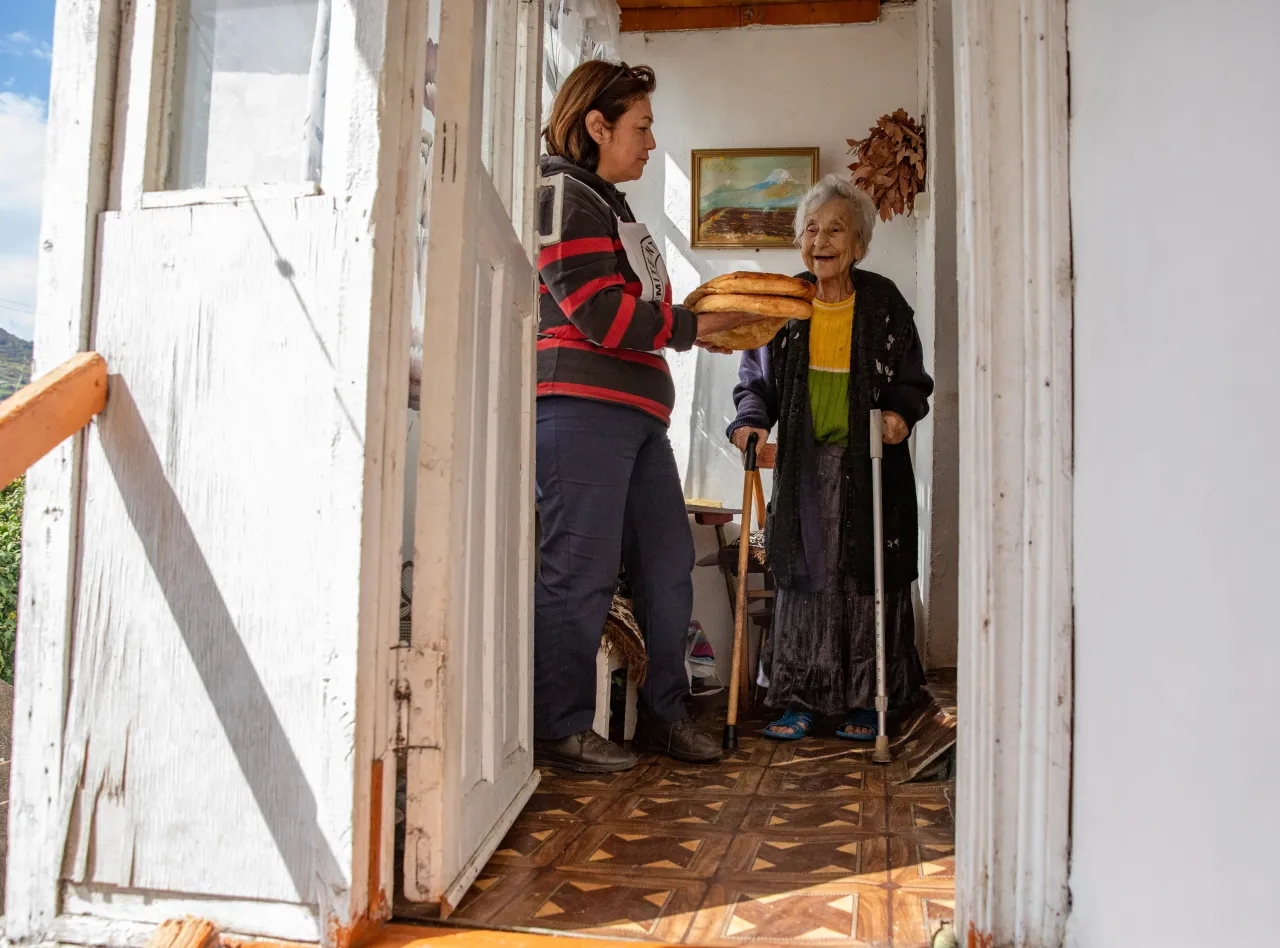
Very soon after the outbreak of hostilities in September 2023, ICRC teams went into remote parts of Karabakh to provide food and medicine to people who had been unable to flee the fighting or who wanted to stay put.
Karabakh: On the ground with the ICRC
The escalation of the armed conflict between Armenia and Azerbaijan in September 2023 forced tens of thousands of people to flee their homes, leaving behind their belongings and livelihoods. The humanitarian situation for those who remained was precarious. ICRC teams went door to door to make sure the most vulnerable and isolated people in the Karabakh region were not left without life-saving assistance.
As the only international humanitarian organization able to work during that time, we evacuated people in need of medical assistance, provided medicines and supplies to health structures, collected the dead, marked areas contaminated with mines and unexploded ordnances.
Learn more here.

Some of the displaced people in Dalhiska camp in Kismayo sell fish as a means of sustaining their families. Their day starts early with a trip to the beach and the markets to buy fresh fish. Maryan Abdullahi cleans and guts the fish in preparation for customers at her stall in Dalhishka IDP camp.
Somalis fish for new income sources amid worsening drought
Farmers and herders have seen their livelihoods decimated by long dry spells. With a sixth consecutive season of below-average rainfall and the fertile land available shrinking, fishing remains a viable alternative source of income for many.
The International Committee of the Red Cross (ICRC) supported 250 families in Mogadishu, Bossaso, Middle Shabelle and Lower Juba with boats, engines, solar refrigerators and fishing equipment in 2023.
See photo gallery
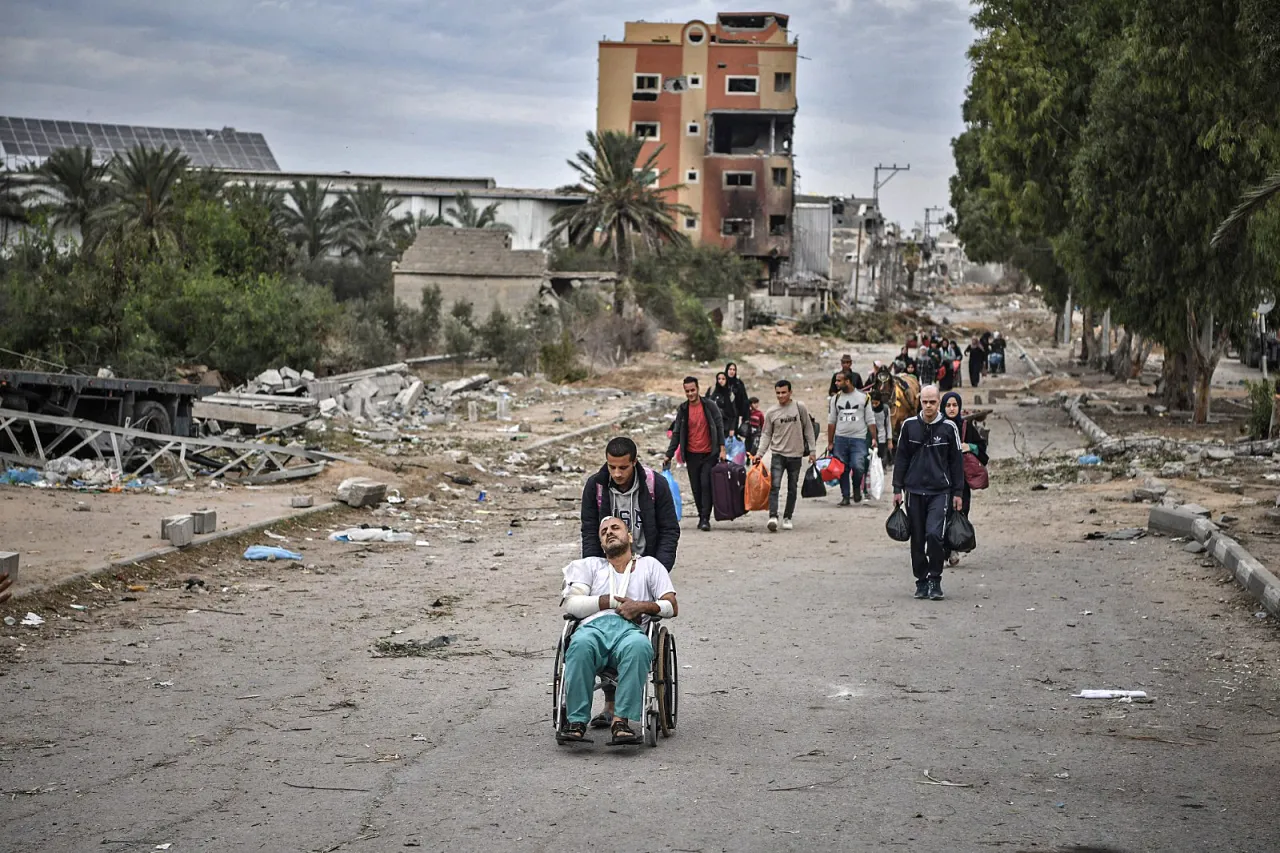
On October 25, 2023, residents of Gaza City fled to the south of the Gaza Strip, abandoning their neighborhoods devastated by the fighting.
Israel and Gaza: An unbearable tragedy unfolding
From the impact of the attacks in Israel on the 7 October 2023, to the deteriorating humanitarian situation currently seen in Gaza, there has only been relentless human suffering.
An unbearable tragedy is unfolding in front of our eyes in Gaza. Hostilities taking place in heavily populated urban areas, including around hospitals, endanger the lives of the most vulnerable people.
Families of those taken hostage are living through a nightmare they cannot wake from. The ICRC has been persistently advocating on behalf of the hostages held in Gaza. We continue to insist on the hostages' release and are doing everything in our power to gain access to them. We cannot do this alone; agreements must be reached that allow the ICRC to safely carry out this work.
Our teams lack basic security conditions to move safely and provide humanitarian aid in Gaza. We need these basic safety conditions to be able to operate and assist the population.

Hostages Square, Tel Aviv - Israelis lighting candles for the hostages and victims of the 7th of October.



